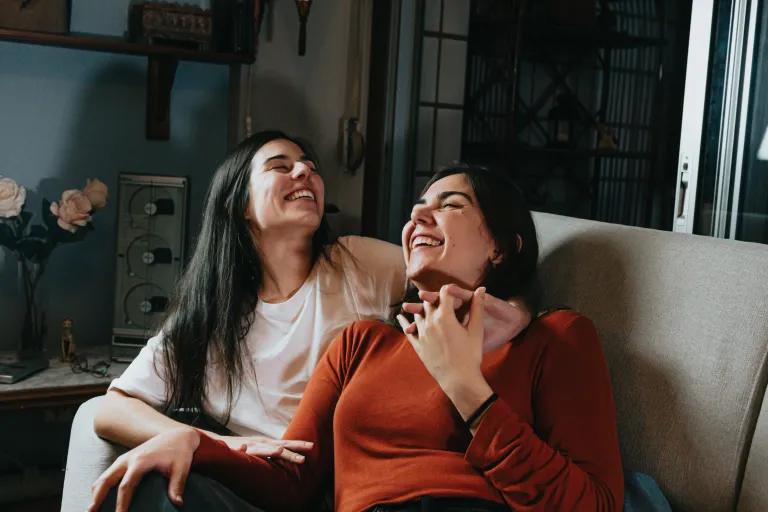
What does it mean to be in a relationship that's an emotional rollercoaster? How does this kind of relationship develop? How can you cope if you're already in one?
The emotional rollercoaster of relationships
Some of us love riding on a rollercoaster, and others absolutely hate it and would do anything to avoid the experience. The unpredictable ups and downs provide excitement and exhilaration for some but can produce feelings of fear and terror in others.
Understanding the impacts of emotions on relationships
Any relationship is, of course, unique to the people who are in it and its highs and lows are a product of those people’s moods. Our emotions vary from day to day, depending of what’s going on for us and so will those of our partner, and the combination of our emotions will affect whether or not our relationship is an emotional rollercoaster. Some people thrive on relationships where there’s lots of passion, verbal and sexual energy and if this is what makes you both feel happy and fulfilled, then there’s not a problem.
Recreating familiar relationship patterns and how to break them
As adults, we often recreate (although we’re sometimes not even aware we’re doing it) the relationship we had with our parents or the relationship that they had. Despite our intentions to create something very different (if it was not a good experience), we still sometimes find ourselves falling into old patterns of communicating, because they are, well, familiar. But if we can talk with our partner about this, and there is trust and respect between you to be able to point out to the other how a behaviour is impacting, then those familiar but unhelpful patterns can be changed, if you work at it together.
The importance of communication
Being able to talk with our partner about our emotions and to explain why we are feeling a particular way is crucial to understanding each other. Equally important is being able to listen to your partner when they are wanting to share their feelings with you, particularly if you’ve had any kind of disagreement or misunderstanding.
The ability to ‘make it up’ when you’ve had an argument or one of you has hurt the other, for whatever reason, is another key quality in a healthy relationship. Of course, ‘making it up’ to your partner may be about being intimate and the warmth and closeness that involves which can be a high point in any relationship.
Conversely, the low point may be about feeling misunderstood or not heard on a regular basis, even when you’ve tried to talk about how you feel. The ‘walking on eggshells’ experience, that many people talk about in counselling, when you realise that whatever you say is dismissed, disputed or denied and that your feelings are of no importance at all should be a red flag that might indicate your partner is not bothered about how you feel and more concerned about how you treat them.
The highs and lows of emotional relationships
In the early stages of a rollercoaster relationship, you may feel like as if you’re being swept off your feet with lots of gifts, time ‘for just the two of you’, promises of what you’ll do in future. You may never have felt so special. But it could be that that ‘specialness’ comes at a price; the price could be cutting back on how often you see your family and close friends; having decisions made for you about what you do and where you go and, if you say or do anything that your partner doesn’t like, there’s a big row, or you may get the ‘silent treatment’ whilst not knowing exactly what you’ve done to upset them. And then, when your partner senses you pulling away from them, then they may try and make it up to you with more presents and promises, and the rollercoaster is off again.
Coercive and controlling behaviour
Whatever you do to modify your behaviour, it’s not enough and the pattern repeats. It could be the start of an emotionally controlling and coercive relationship and it’s important to decide whether or not this is really the right relationship for you (and, just as importantly, your children, if you have any) or whether you need to leave.
Rollercoasters may be fun at the theme park or the fair where they always stop and you can get your feet back on the ground. If you find you’re on one in your relationship that doesn’t stop or change, where you feel permanently out of control, it may be less fun.
Talk your situation through with a trusted friend or, alternatively, have some counselling for yourself to help you decide what to do next. If, at any point, you feel you are in any kind of risk or danger, then contact Women’s Aid (0808 2000 247 or www.nationaldahelpline.org.uk) or your local Domestic Abuse support service.

